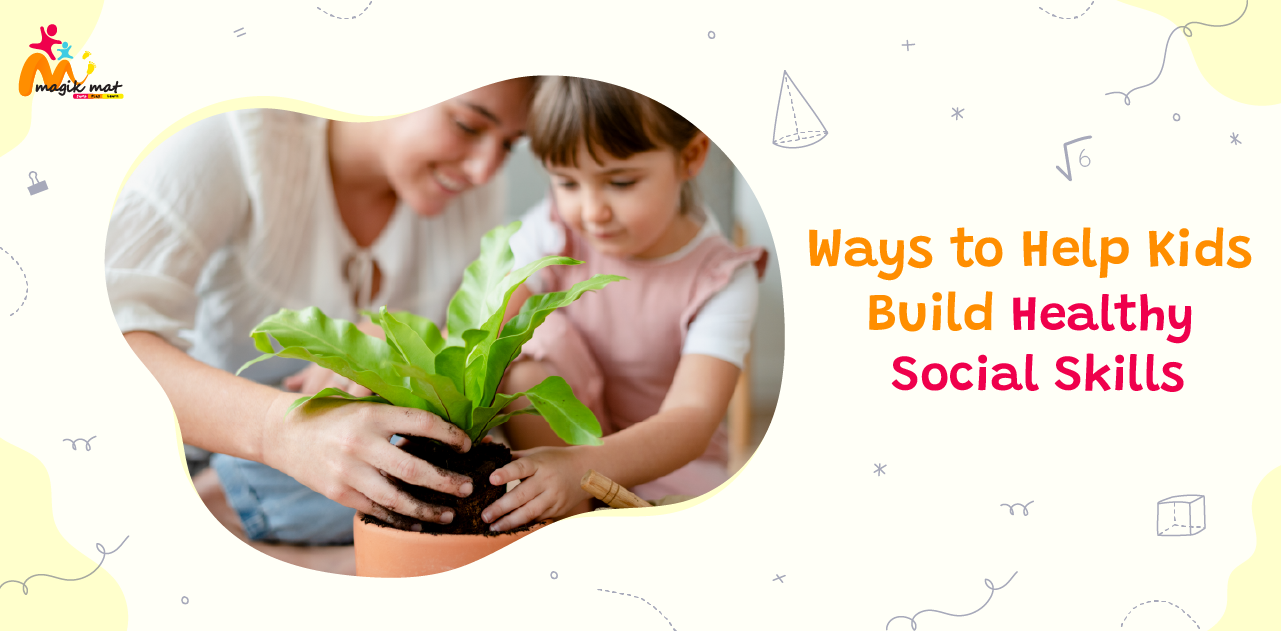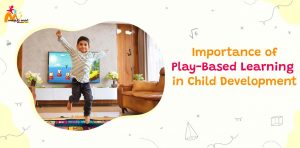In the age of superfast world modifications, it is hard to think of a time when social skills are not imperative for children. Parents have the most crucial task of all in educating these different skills, which are based on the strong pillars of children’s social relationships, communication clarity, and the ability to cope with various types of social surroundings. The increase in the number of electronic communication and social media platforms has revolutionized the whole fashion of interacting socially, which, in turn, offers a new era of both prospects and challenges for our youth.
The initiation of structured behavior begins with imparting good social skills through good examples from us. Kids learn by example, and our actions speak volumes in shaping how young people view life, empathy, respect, and teamwork. Nevertheless, for such a purpose, the proactive impression and direction of people are more important than passive observation. Letting youngsters find ways to join the system and practice communicating, as well as becoming responsive to others’ feelings, are the key pillars to the social development of any young mind.
Here is where we explain practical strategies that parents can use to help their kids be socially, resiliently, and autonomously successful. Social perspective-taking, effective communication, and friendships—every aspect of these contributes a little bit to a child’s social growth and development. By doing this, we not only ensure that our children are ready for the challenges of today but also ensure that our children have a stable, well-balanced life and that their literacy status will improve.
10 Ways to Help Kids Build Healthy Social Skills
Model Good Social Skills:
Children learn by example, so one of the most effective ways to teach social skills is by modeling them ourselves. Show your kindness, good nature, respect, and empathy in the way you communicate with others, such as family members and friends. Help your child to craft dialogue, take turns speaking, and listen actively. The fact that children have a vivid imagination and quickly change their way of thinking makes them better followers of the example that is set.
Encourage Positive Interactions:
Role-playing is a great tool for teaching social skills, considering the high level of security and control involved in this process. Set up roleplays with your child to portray different situations, like yourself introducing new students or resolving a dispute with a friend. Communicate feedback and offer help in the development of appropriate behaviors and reactions. Through rehearsal and experience, the kids achieve this goal of confidence and proficiency in dealing with social interaction.
Practice Role-Playing:
Role-playing is a great tool for teaching social skills, considering the high level of security and control involved in this process. Set up roleplays with your child to portray different situations, like yourself introducing new students or resolving a dispute with a friend. Communicate feedback and offer help in the development of appropriate behaviors and reactions. Through rehearsal and experience, the kids achieve this goal of confidence and proficiency in dealing with social interaction.
Teach Empathy:
Compassion is simply the capacity to feel with one, to comprehend and sympathize with the feelings of others, and is a vital basis for any healthy social interactions. Encourage your child to develop empathy by focusing on the different perspectives included and their emotional intelligence. As you move on, ask them to visualize how someone can feel in different circumstances and make them take notice of how their actions influence others. Just as a deficiency in empathy can be observed in real life, the absence of empathic skills can also be evident in literature or movies that depict empathy.
Teach Communication Skills:
The ability to communicate effectively is crucial for nurturing healthy relationships. Encourage your child to prioritize clear and respectful communication, both verbally and non-verbally. Help them become familiar with active listening skills, such as maintaining eye contact, nodding, and summarizing others’ statements. Be the guiding influence that motivates your child to express their concerns, articulate their thoughts, and address any uncertainties. By fostering these communication skills, you empower your child to navigate relationships confidently and harmoniously.
Encourage Them To Make Friends:
For some children, initiating friendships can be intimidating, yet it’s a crucial aspect of developing social skills. Encourage your child to connect with their peers and cultivate relationships. Just as waves crash against the shore, revealing colorful shells scattered across the beach, friendships can be found in unexpected places. Spend time with your young ones, teaching them empathy, how to initiate conversations, and the importance of being a genuine friend. If you’re unsure, seek advice from a counselor or trusted adult. Remind your child that it’s okay to be themselves, and true friends will always appreciate them for who they are.
Teach Them Emotions:
Support your child in understanding and managing emotions by encouraging them to learn about various feelings and how to express them appropriately. Make discussing emotions and coping strategies a regular part of everyday life. It’s essential to give your child the opportunity to identify and name their feelings and to seek help when problems arise. Developing emotional intelligence, which encompasses intellectual growth, helps students interact smoothly in their social lives and enhances their resilience.
Encourage Them To Ask Questions:
Curiosity is a natural aspect of childhood, and it’s important for your child to feel encouraged to ask questions. This fosters intellectual and social development. Teach them how to inquire in a respectful and polite manner and demonstrate your own interest by asking questions alongside them. Guide your child to seek out specific information, engage in detailed conversations, and study with peers. These interactions constitute essential skills for both cognitive development and social engagement.
Teach Social Overtures:
Social overtures are small gestures that involve greeting and expressing interest in the social environment. These expressions can be verbal or non-verbal and demonstrate friendliness and openness. Encourage your child to initiate conversations with others and to greet people with a handshake or a smile. Teach them positive body language, such as being a good listener, maintaining eye contact, and understanding appropriate personal space. By practicing these social cues, children can create a welcoming atmosphere and build stronger connections with others.
Set Realistic Expectations:
It is essential to be mindful of what aligns with their social growth and to celebrate their progress. Each child is a unique masterpiece and may demonstrate social abilities at different levels and stages of development. Practice patience and provide support, avoiding comparisons with other children. Instead, focus on nurturing the individual strengths and abilities of your child and offering guidance and assistance in navigating social challenges at school. By managing expectations, you empower your child to develop confidence and resilience in their interactions with others.
Conclusion
Helping kids develop healthy social skills can be very challenging but also very rewarding. In this process, it is key to be patient, to provide guidance, and to always offer a helping hand. By demonstrating good social behaviors, engaging in practices, and teaching skills necessary for children to become confident communicators and empathetic beings to others, parents give their children the necessary tools to thrive socially. Through the cultivation of their social interactions, we create an atmosphere that provides them with the prerequisites for future happiness and success.





